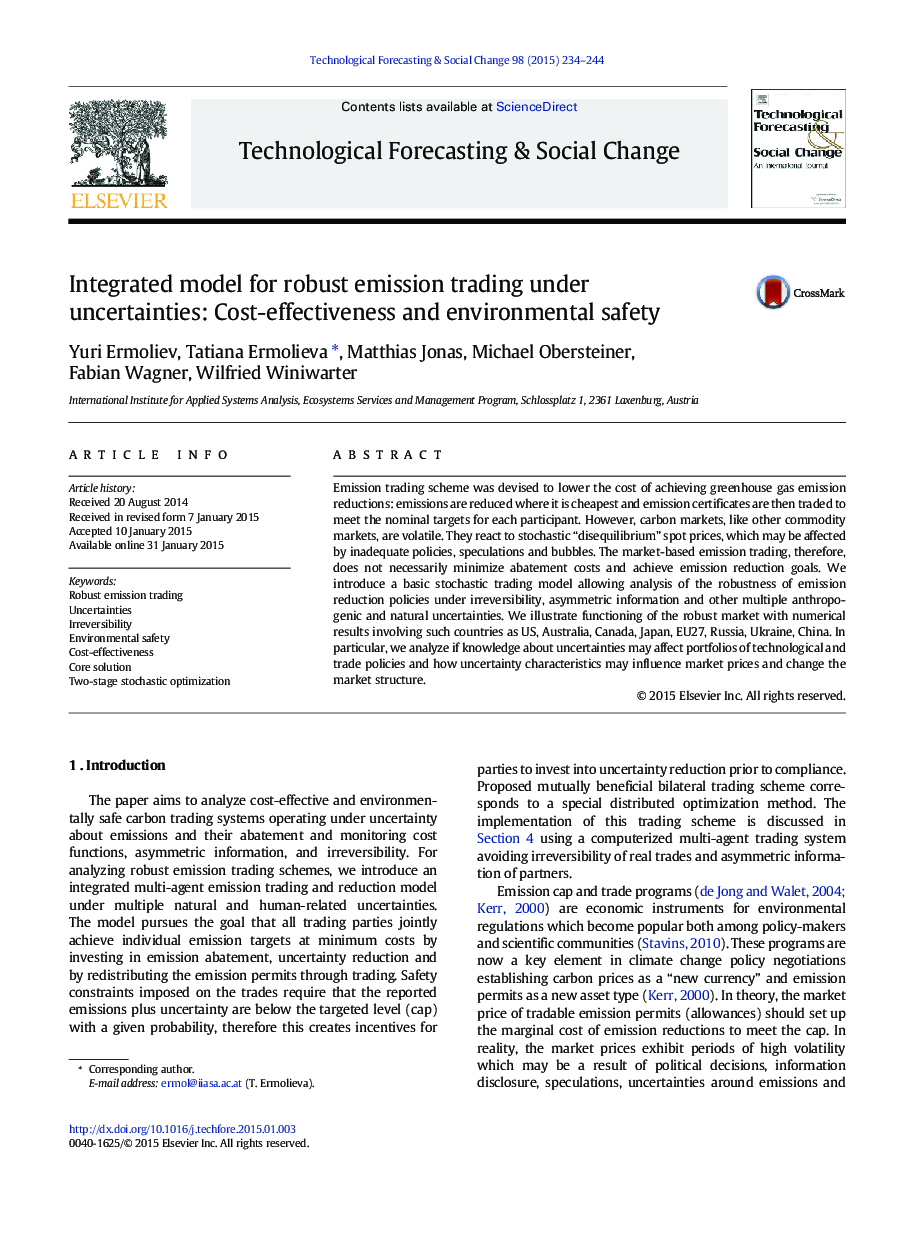| Article ID | Journal | Published Year | Pages | File Type |
|---|---|---|---|---|
| 7256579 | Technological Forecasting and Social Change | 2015 | 11 Pages |
Abstract
Emission trading scheme was devised to lower the cost of achieving greenhouse gas emission reductions: emissions are reduced where it is cheapest and emission certificates are then traded to meet the nominal targets for each participant. However, carbon markets, like other commodity markets, are volatile. They react to stochastic “disequilibrium” spot prices, which may be affected by inadequate policies, speculations and bubbles. The market-based emission trading, therefore, does not necessarily minimize abatement costs and achieve emission reduction goals. We introduce a basic stochastic trading model allowing analysis of the robustness of emission reduction policies under irreversibility, asymmetric information and other multiple anthropogenic and natural uncertainties. We illustrate functioning of the robust market with numerical results involving such countries as US, Australia, Canada, Japan, EU27, Russia, Ukraine, China. In particular, we analyze if knowledge about uncertainties may affect portfolios of technological and trade policies and how uncertainty characteristics may influence market prices and change the market structure.
Keywords
Related Topics
Social Sciences and Humanities
Business, Management and Accounting
Business and International Management
Authors
Yuri Ermoliev, Tatiana Ermolieva, Matthias Jonas, Michael Obersteiner, Fabian Wagner, Wilfried Winiwarter,
